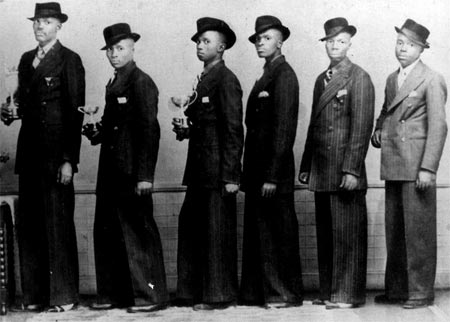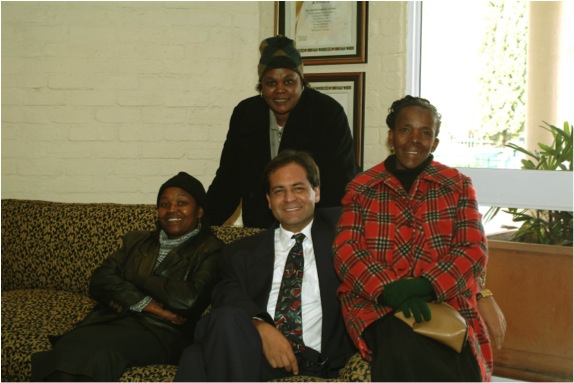Readers will have observed from perusing the articles on this blog that I have commented on a number of occasions on the proclaimed intention of the Government to pass legislation curtailing or prohibiting the use of trade marks on tobacco products, both on their packages and in advertising. I have expressed the view that by so doing the Government will be depriving the trade mark owners of their valuable items of property which is at odds with Section 25 of the South African Constitution, unless compensation is paid for such depravation or expropriation. In this regard see the items entitled “Trade Marks Going Up in Smoke” and “Fire Fighting”.
The proposition which I have propounded has been the subject of comment by other writers and legal commentators and it is to be the subject of a public lecture to be delivered by Prof. Harms of the University of Pretoria on 13 March 2013. The views of Prof. Harms are awaited with interest.
Hans Muhlberg in his “Muhlberg’s Brief” criticized my abovementioned proposition, as he is entitled to do, and opined that it has little merit. I am happy that there should be a lively debate on the issue and I am more than willing to entertain diverse points of view. I have given due consideration to Muhlberg’s arguments but in the final analysis my views as previously expressed remain unchanged. I will shortly be publishing a fully reasoned academic article on the subject and I will deal with the substance of his criticisms in that article. The article will also form the basis of my inaugural address marking my investiture as a Professor at Stellenbosch University, on 21 May 2013. The title of my inaugural address is “Deprivation of Trade Marks through State Interference in their Usage”. (Editor: For more information on Prof Dean’s inaugural address please contact the Chair of IP).
There is, however, one issue on which I want to challenge Muhlberg at this stage. Muhlberg points out that, in terms of my proposition, the Government will be liable to pay huge sums in compensation to brand owners and he mentions the trade marks ROTHMANS, DUNHILL and PETER STUYVESANT, specifically. These are of course all trade marks in which the Remgro/Rupert Group has an interest. He then goes on to say “it is worth noting that Stellenbosch’s chair of IP law is Rupert funded” and he uses this statement to insinuate that the proposition that I have advanced is an instance of “he who pays the piper calls the tune”. I reject this statement out of hand. It is a slight on Stellenbosch University, the Anton Mostert Chair of Intellectual Property Law, and me personally. It impinges on our academic integrity.
Muhlberg was obviously commenting on my article entitled “Trade Marks Going Up in Smoke” which had appeared about a month previously on this blog. He presumably read the entire article and in doing so he could not have failed to come across the following statement: “It will be recalled that a few years ago the Government yet again made noises about stopping South African Rugby from using the SPRINGBOK emblem which is a registered trade mark owned by S A Rugby. At the time, Prof. Owen Dean, the current incumbent of this chair of intellectual property law, expressed the view in the media that by preventing S A Rugby from using the SPRINGBOK emblem the Government would be depriving South African rugby of an item of property and that this could not be done without paying due compensation”.
At the time when I developed the trade mark depravation argument (roughly 4 years ago) I was still in active legal practice at Spoor & Fisher (who do not represent SA Rugby) and I had no connection with Stellenbosch University. The formation of the Anton Mostert Chair of Intellectual Property Law was approximately two years in the future and was not even in contemplation. Last year, when the renowned cigarette plain packaging case came before the Australian court, in view of its topicality and relevance to South Africa, I adapted my argument dealing with the possible forfeiture by S A Rugby of their valuable item of property, the SPRINGBOK emblem, to suit the circumstances of what was unfolding in the international tobacco industry. Exactly the same situation prevailed in both instances.
The clear fact of the matter is that my trade mark deprivation proposition had been developed in a different ball game to the tobacco industry. This would have been clear to Muhlberg from a reading of my article and one cannot therefore but wonder at his motives in misleadingly suggesting that my argument had been developed to suit the tobacco interests of the Rupert Group of Companies. The corollary of this is that the argument is therefore contrived and self-serving and of tainted merit.
A further consideration which belies his insinuation is that, in keeping with the policy of the University of Stellenbosch, although the Anton Mostert Chair of Intellectual Property was created with an endowment from the Rupert Group, this was done on the strict understanding and subject to the condition that the Chair would have complete independence and the donor would have no say or sway over the conduct over its affairs. I would not have accepted the position of the incumbent of the Chair on any other basis. The Chair adopts a fiercely independent line and approach and this will be evident to anyone who has read the articles on this blog.
Perhaps an apology from Mulberg would not go amiss!
Professor Owen Dean










